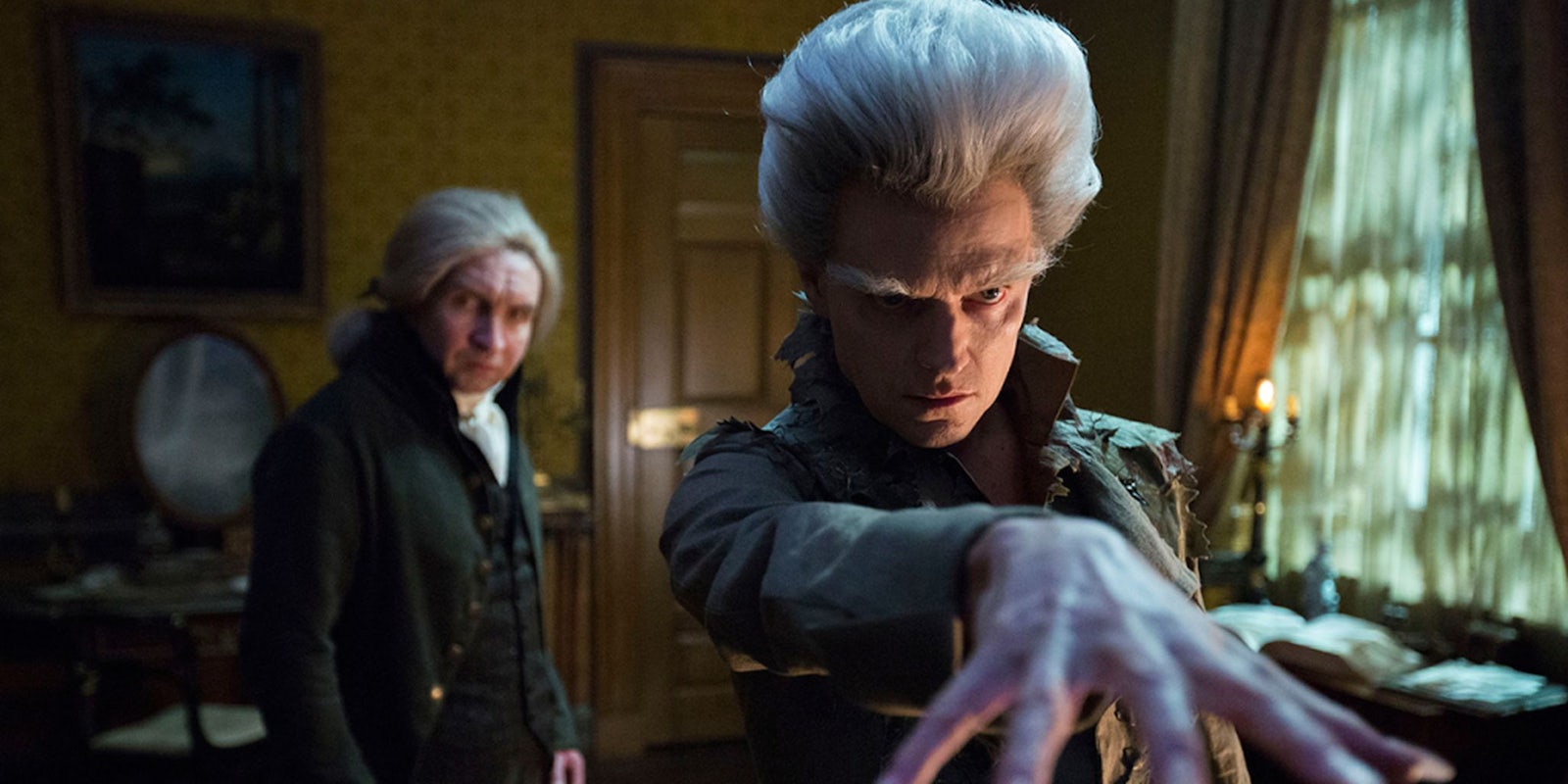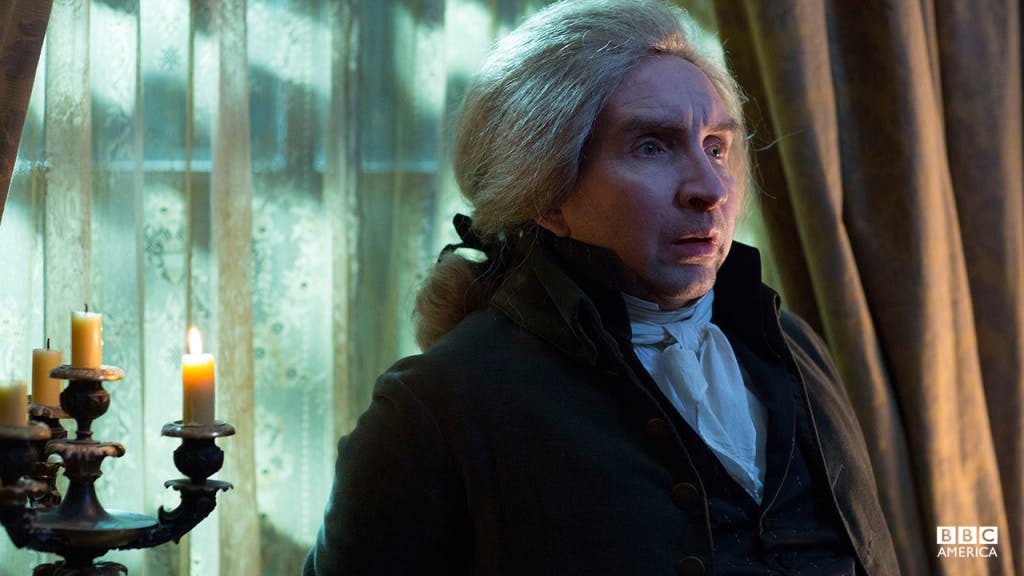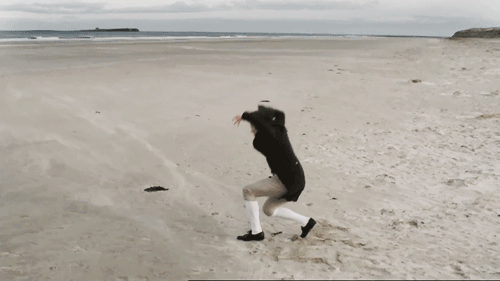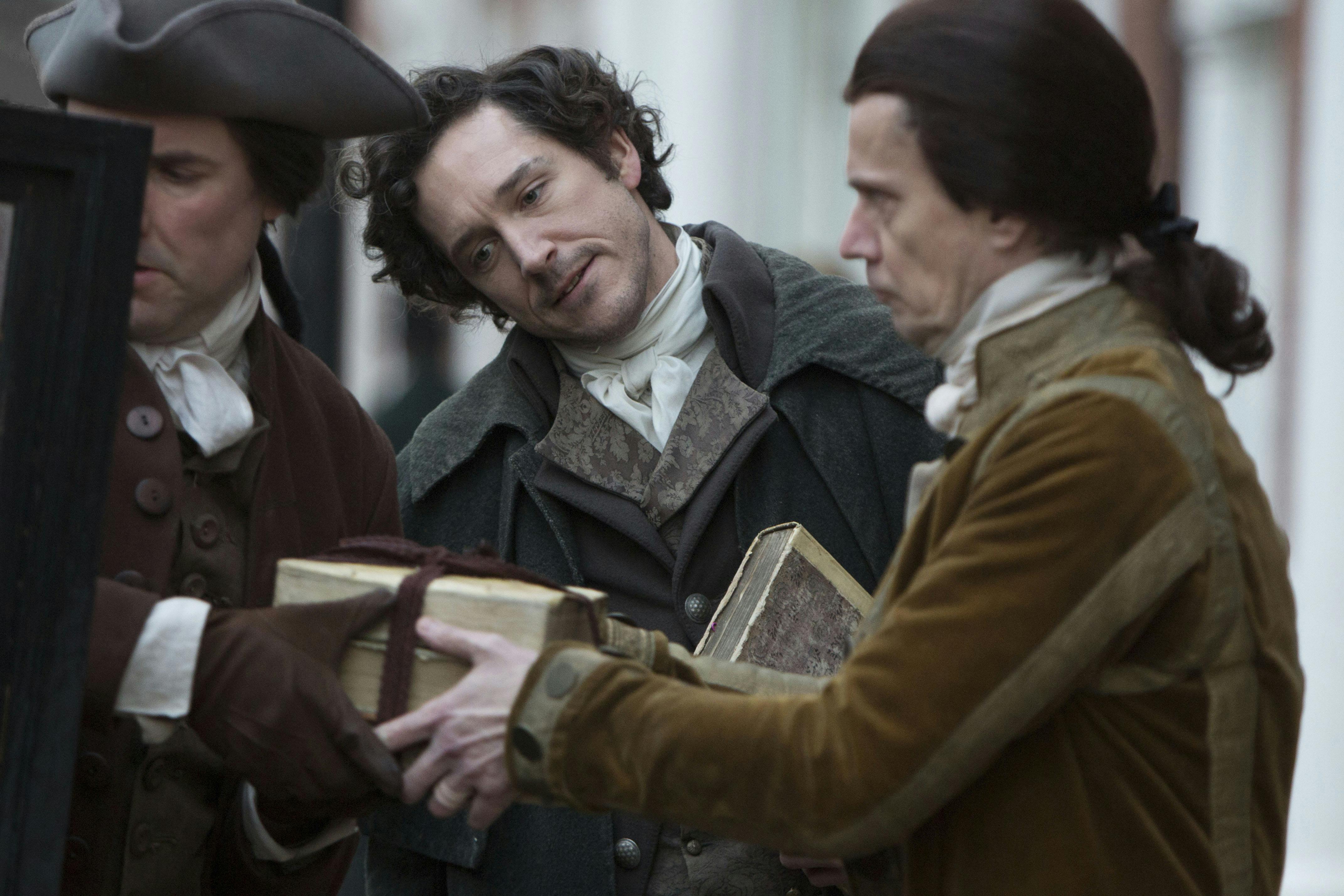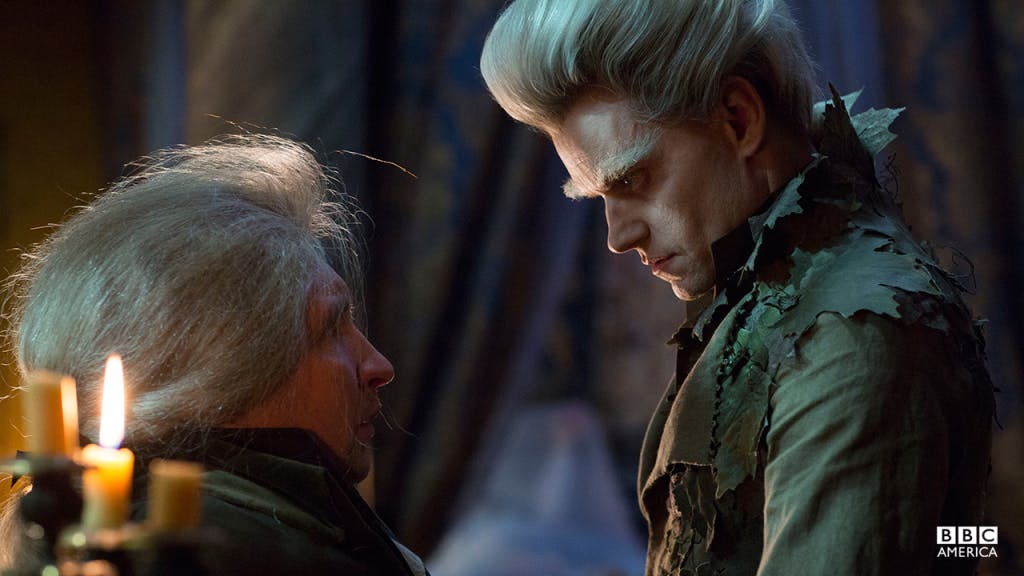Jonathan Strange and Mr Norrell is a fresh and clever take on historical fantasy, a great distance from the clichés of steampunk or the bloody action of Game of Thrones.
Taking place during the Napoleonic Wars, it has the dryly witty tone of a Regency drama. The key difference is that in this version of 19th-century England, the study of theoretical magic is a respectable hobby like botany or astronomy. “Practical” magic is viewed as taboo—until the secretive Mr. Norrell reveals himself to be the first practicing magician in 300 years.
Norrell is an unusual protagonist: a miserly, narrow-minded bore who is obsessed with his book collection and loathes human contact. It’s an unfortunate set of characteristics for someone who quickly becomes a national celebrity.
The show is sparing with its visual effects, so the magic is all the more compelling when it finally appears onscreen. Most of the time Jonathan Strange and Mr Norrell feels like any other well-crafted BBC historical drama, but then someone will bring a statue to life or create a fleet of ships out of raindrops, and you’ll be jolted into a sense of wonder.
Fans of the book will be very satisfied with this adaptation, although new viewers may be discouraged by its slow start. We recommend persevering to the end of the first episode, because things get interesting—and surprisingly hilarious—soon enough.
Norrell’s protege Jonathan Strange is funny and charming from the moment he appears onscreen, a hapless wastrel who becomes a magician to impress his girlfriend. He quickly displays more natural talent than Norrell, setting up the central rivalry between Norrell’s intellectual snobbery and Strange’s exciting but unpredictable brand of magic.
This show is a rare breed, a prestigious British period drama with no famous stars. Instead, it’s populated by vaguely recognizable (or even unknown) character actors, which turns out to have been a smart decision. Bertie Carvel and Eddie Marsan perfectly embody Strange and Norrell, supported by a cast who could easily have been plucked straight from the book. Carvel’s performance is doubly impressive once you learn that he won an Olivier Award for his portrayal of Miss Trunchbull in Matilda the Musical. Slapstick drag villain to frivolous gentleman adventurer: now that’s range.
Among the supporting cast, Mr. Norrell’s sly sidekick Childermass is sure to become an audience favorite.
In the book he’s more obscure, a behind-the-scenes manipulator who works through Norrell due to his own low-born status. The adaptation extrapolates this into a mocking kind of comedy. When Norrell says something snooty or self-absorbed, the camera will pan round to Childermass lounging against a wall and rolling his eyes, eternally the cleverest person in the room. This kind of humor permeates the show, nudging it from a straight period drama into the realm of satire.
In many ways this is a story about class and privilege, with the aristocratic Strange and Norrell derailing people’s lives without thought for the outcome. Norrell uses his inherited wealth to prevent “lesser” men from learning magic, and ruins someone’s life in his quest for respectability. Meanwhile Strange is an arrogant but well-meaning layabout whose hobby changes the course of history.
While Jonathan Strange and Mr. Norrell is full of rich snobs and buffoons, some of its best characters are the ones who can’t float through life on a cloud of upper-class male privilege. Showrunner Peter Harness clearly had this in mind when adapting characters like Childermass, Arabella Strange (smart and independent), Lady Pole (a wonderful commentary on the way women were ignored and silenced by society), and Stephen Black (an African-English butler whose life depends on handling the whims of selfish aristocrats.)
The only letdown is the Gentleman with the Thistledown Hair, one of the most evocative characters in the novel. This role is a gift, a menacing supernatural entity who lands somewhere between David Bowie in Labyrinth and a lone alien invader.
Unfortunately Marc Warren’s performance mainly consists of birdlike mannerisms and standing too close to people while purring his dialogue. Even his hair and makeup look oddly subpar compared to the rest of the show: enormous false eyebrows and a bouffant quiff, positioned above a jacket adorned with fake leaves. Tastes may vary, but I suspect he’ll be the one disappointment for fans of the novel.
Author Susanna Clarke didn’t have much input in this adaptation, although you wouldn’t know it from watching. Clocking in at 782 pages and spanning several countries and alternate dimensions, Jonathan Strange and Mr. Norrell must have been ferociously tricky to compress into a seven-part miniseries. But somehow, they managed it. Judging by the first two episodes, it’s already one of the best genre shows of the year.
Photo via BBC America

